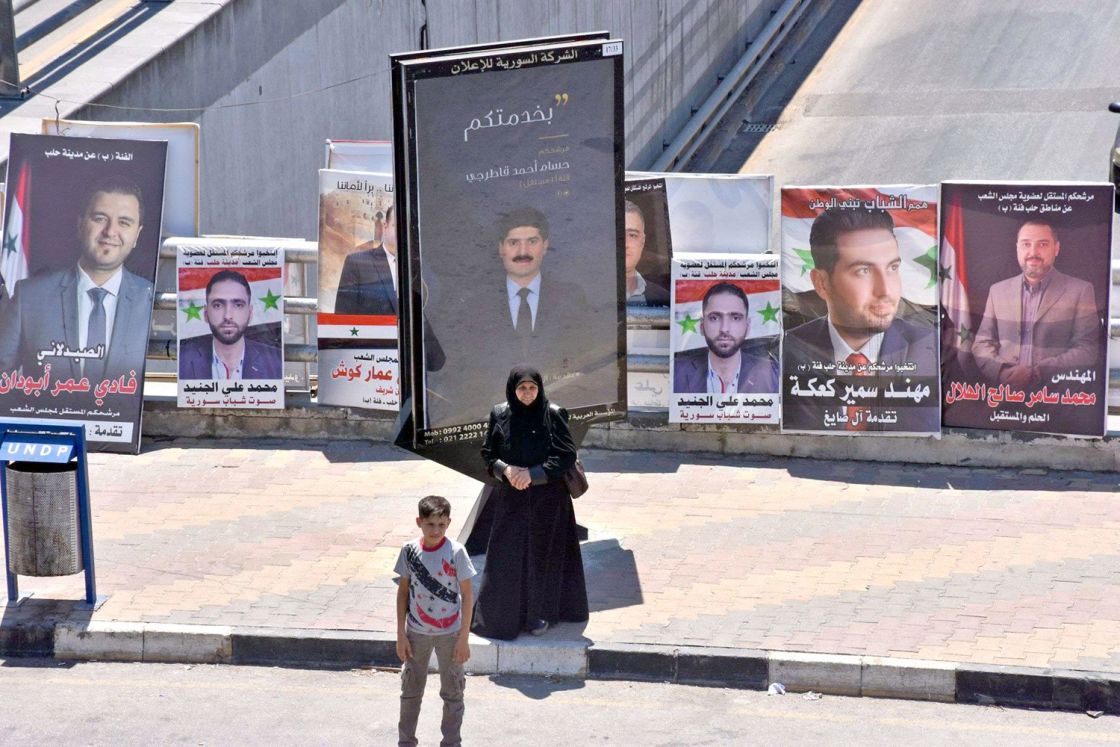- Editorials
- Posted
Kassioun Editorial 1183: Elections, Election Law, and the Political Solution
Tomorrow, Monday, July 15, new elections will be held for the Syrian People’s Assembly. These elections, like many elections that took place in Syria during the crisis and even before it, receive a modest amount of media attention, not to mention the low popular interest towards them.
The explanation for this decline in interest is not limited to issues of integrity and transparency, the (National Progressive) Front’s lists, near complete absence of political programs for majority of candidates, and estimated prior knowledge of the results. Rather, the decline in interest extends beyond that to more fundamental reasons, most notably:
First: The limited constitutional powers of the People’s Assembly, which in most cases make it an extension of the executive power. Perhaps one of the clear examples of this is that the People’s Assembly does not have the authority to give confidence to governments, while it has the authority to withhold confidence therefrom. This is in addition to many other details related to the periods when it is in session and the ability of the executive power to directly exercise the Assembly’s role during the periods when it is not in session, etc.
Second: The election law that is still in effect is essentially the same as it has been for many decades, which is founded on a majority basis, and on the basis that the electoral district is the governorate. This turns the People’s Assembly into local representations similar to municipal representations, far from its role as a political representation of the entire Syrian people. Additionally, and based on actual experience, this election law practically lets loose the forces possessing money and power to pre-control the results.
Third: The chronic absence of the effectiveness of successive People’s Assemblies, and their inability to play a clear role in the interest of the Syrian general public, accumulates the impossibility of popular reluctance to pay attention to it. As a result, it turns, with its composition and performance, to a large extent, into an essential part of an old political space whose connection with the people has been severed.
The transition to a new stage in Syria requires, in essence, making room for the birth of a new political space that is connected to the people and expresses them in a real way.
This matter, as an essential part of the Syrian political solution according to UNSC Resolution 2254, can only take place on the basis of a modern election law of a completely different type than the current one, one in which Parliament consists of two chambers. The first chamber would be elected based on Syria is one proportional electoral district. That is, on the basis of a comprehensive proportional election law, which opens the door to competition of national political programs, and not competition of images and slogans.
The second chamber, similar to a Senate, would be elected on the basis of small individual electoral districts, allowing administratively connecting the country within an advanced formula for the relationship between centralization and decentralization, and bolstering the power of the people on the ground in the regions, as a complement and extension of the power of the people in the center through the first political chamber.
The most important thing that should be stipulated in a future election law as part of the comprehensive political solution in Syria, in addition to the abovementioned, is the practical mechanisms that prevent the interference of the forces of money and power in the elections. Implicitly, these mechanisms should provide oversight of equal opportunities for appearance and media campaigns for the candidates, blocs and individuals.


